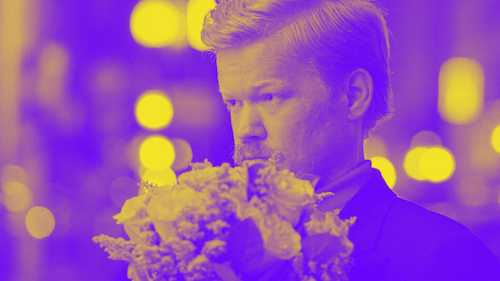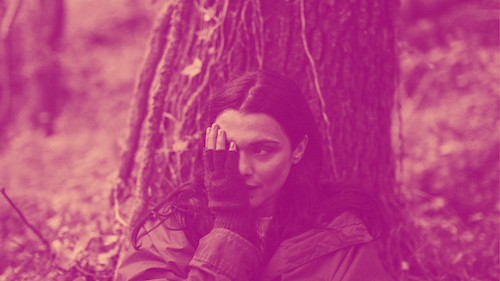Filmography Worship: Ranking Every Yorgos Lanthimos Film
Written by Andreas Babiolakis
Filmography Worship is a series where we review every single feature of filmmakers who have made our Wall of Directors (and other greats)
Even though Yorgos Lanthimos has his own idiosyncratic style that simply cannot be mistaken for that of another, he is (not so) secretly a massive student of film who pools together all of his favourite filmmakers and motion pictures into his projects. He’s been upfront with his influences, from Stanley Kubrick, Luis Buñuel, and Jean-Luc Godard to films like Peter Greenway’s The Draughtman’s Contract and Ingmar Bergman’s Cries and Whispers. He reportedly watches Seijun Suzuki’s Branded to Kill before he starts working on any project for inspiration. This is all starting to make sense now, isn’t it? Lanthimos has gradually become the master of modern, cinematic absurdism via his satirical, shocking features (where even his most “normal” film is quite twisted by the standards of the general public). If this is all you knew about Lanthimos and Greek cinema, you’d swear he was one of a kind.
That isn’t so. Greek film in general is quite daring and unorthodox when compared to the film circuits of many nations. Lanthimos is a part of the Greek Weird Wave movement alongside directors like Athina Rachel Tsangari (who has produced some of Lanthimos’ films) and Syllas Tzoumerkas. Even still, Greece has been exporting arthouse masterworks from directors like the legendary Theo Angelopoulos (The Traveling Players, Eternity and a Day) and the underrated Nikos Nikolaidis (Sweet Bunch, Morning Patrol) for decades. Lanthimos is a part of an era and a culture. Even still, it is safe to say that — at this point — Lanthimos still stands alone as a masterful filmmaker with his own unique voice, even if it is indicative of those around him. He studied the art of directing for both film and television at the Hellenic Cinema and Television School Stavrakos in Athens and slowly worked his way up the ladder of film, from co-directing with an already established Greek icon to carving his own path via trial and error.
The results are what can be seen below: a challenging, risky, bold career. Not many directors have effectively brought arthouse cinema to the masses and continuously thrived (nay, survived). No matter how abrasive, dark, or outright strange Lanthimos’ films are, he resonates with the masses with films that make us laugh with tears in our eyes, feel sick to our stomachs, or second guess what we are even seeing. Outwardly cynical, typically political, and almost always hysterical, the works of Lanthimos are ones to behold. He has tackled major themes like mental illness, societal disparity, the discomforts of embarrassment and sickness, and all of the things that shouldn’t make us laugh (and yet they do) with great ease. It’s safe to say that he is one of the most fascinating directors of the twenty-first century at this rate, and there are no signs of slowing down for the Greek auteur. Let’s rank the feature films of Yorgos Lanthimos from worst to best.
10. My Best Friend
This isn’t really Lanthimos’ first film as it was a feature he co-directed with established actor Lakis Lazopoulos. Even though Lanthimos took the reigns as a director here, this barely feels like the work of the director we have come to know and love. It is quite conventional as a comedy, although there are some odd segues, cutaways, and sequences. This is a strange film about a husband who arrives home early and catches his wife in bed with another man, although the former (played by Lazopoulos) pretends to not have seen them in the act of love-making. What follows is hijinks, vignettes, and the wrong kind of silly; something Lanthimos would quickly learn to stop making. The end result is a wacky film that feels juvenile, mediocre (and occasionally cringy), and beneath both Lanthimos and Lazopoulos. It isn’t an outright terrible film, but if you want the best that Greek films have to offer, you can certainly do better in the careers of both Greek veterans. This film is barely worth it even for the biggest Lanthimos fans because it barely feels like a Lanthimos film at all.
9. Kinetta
Lanthimos’ first feature film as his own director is an interesting yet flawed affair. Kinetta is as upfront as he’s ever been with his influences, as the film reads almost purely Godard to me. After My Best Friend and the budgetary help he likely got for that film, you can sense a drastic drop in technical quality with this release (likely because it was far harder to fund this film). While a more imaginative, risky release, this is clearly a film made by a director who finally had free control of his artistry and was trying to figure out his footing. It’s kind of sloppy, occasionally fascinating, and even sometimes dull (something you usually never associate with a Lanthimos film: you don’t have to like his films because they’re not easy to watch for many, but his works are never dull). Kinetta feels more like a series of images and ideas than a cohesive statement or feature. Fortunately, he would right this ship instantly afterwards. Maybe leave this one just for the biggest of Lanthimos aficionados.
8. Alps
From this point on in the list, Lanthimos’ filmography greatly leaps in quality. After the major success of Dogtooth, Lanthimos’ follow-up film, Alps, had some large shoes to fill. This film was released right before his English language films started being released, and it feels like an experiment before he took a break from Greek films. In short, Alps — at the time — was easily his most emotional film as he examined the lunacies within grief. As we watch a team of people — known as the titular Alps — try to recreate the lives of the dearly departed for survivors to console with, we learn about the many different ways that death changes us (even the uglier side of things including unintended selfishness). This was a major sign that Dogtooth wasn’t a fluke, that Lanthimos would continue trying to explore the strangest elements of the human experience, and that the Greek director would not be short of ideas anytime soon. This isn’t even his best idea, let alone his best film. He only got better. Having said that, Alps is a grossly underrated film, and I recommend seeking it out should you be curious or a Lanthimos fan of any sorts.
7. Kinds of Kindness
While a rich trilogy of featurettes when it comes to religious and cultural subtext, Kinds of Kindness is the kind of ambitious project that may not be readily accessible for most viewers. It demands to be rewatched and understood, but I’m not sure if many will give it the necessary time of day. It’s as cryptic as Lanthimos has ever been and is destined to be a work that is appreciated down the road. Each of the three stories of religious sacrifice, modeled by the Greek belief in the Father, the Son, and the Holy Spirit, is as twisted as the next with varying levels of darkness and desperation. The three stories play out strongly on their own but my largest issue is that they don’t amalgamate perfectly together in one nearly three hour project; this doesn’t render the film unwatchable by any means, but Kinds of Kindness is a great film when it had the potential to be phenomenal, given the thought and effort put into its purpose as a commentary on faith and devotion.
6. Bugonia
No one likes being pegged as “insane,” so a film like Bugonia — which is a mental standoff between a conspiracy theorist and the pharmaceutical CEO (one who is familiar with getting her way) who he insists is an alien from the Andromeda Galaxy — feels like an intellectual discussion more than anything; when the film turns the gaze on its viewer and leaves them feeling stupid, you’re guaranteed to have a polarizing response. I personally love what Bugonia does with its shocking revelations, since they leave an audience (one that goes into this film with preconceived notions and expectancies) bewildered and culpable of the same susceptibility of being misled as the characters in the film. It’s natural for Lanthimos’ films to not be appealing to all viewers, but Bugonia is maybe the first time that he has truly strived to push his audience in ways that make them question themselves; the immediate response to the film has been a little hostile, but I feel like Bugonia will be better appreciated in the years to come (once the dust has settled).
5. The Killing of a Sacred Deer
Arguably Lanthimos’ most serious film to date, The Killing of a Sacred Deer also happens to feel like his most Kubrickian effort. As we follow a heart surgeon through an awful curse bestowed upon him and his family (the survivor of a dead patient has forced the surgeon to kill a family member to balance the circle of life or face his entire family member’s slow demises), we know what difficult choice is forced upon him. How can you have favourites in a family? Who do you kill? The Killing of a Sacred Deer is rarely funny (quite uncommon for Lanthimos) and is purely unnerving, as we the audience are also tasked with having to decide which death would be the least harrowing. The entire film builds up to the spine-tingling climax: an extreme version of Russian roulette (of sorts) that is meant to remove any blame or ownership surrounding the murder, and yet it does anything but that; it leaves the fate in the hands of the Gods above, and it feels even more painful as a result. I know this film has its following, and I apologize for it being so low. I love it too. I just happen to love quite a few of Lanthimos’ films, and ranking them from hereon out is quite difficult.
4. The Lobster
Lanthimos’ biggest breakthrough post-Dogtooth was his English language debut: the beautifully ridiculous film, The Lobster. Not many directors make the graceful transition from international cinema to English-language features because the translation of styles, themes, and dialogue doesn’t always work, but Lanthimos somehow used this as an opportunity to deliver a deadpan, abstract, kooky tragicomedy that perfectly captures the tone of voice that humans would have should they communicate as matter-of-factly as animals would (if they could speak English). Almost every line of dialogue is funny, and most circumstances are twisted to the point of nausea. I’m also easily amused, and seeing all the random animals (or, in this case, people who have been turned into the animals of their choosing) roaming around in environments they shouldn’t be in is equal parts fun and depressing (knowing that they are doomed to be alone, unloved, and most likely hunted). The fact that this film isn’t even his best brings a smile to my face; Dogtooth wasn’t made by luck, and neither was this English language debut. Lanthimos was still en route to greater things, even after a film this creative and peculiar.
3. Dogtooth
Lanthimos’ first breakthrough was due to the film festival circuit and the Academy Awards opting to take a chance with one of the most fucked up films of the twenty-first century. Dogtooth compared the then-current state of Greece and its politics to parents using their own children as hostages. Via some of the most dazzling creative ideas I’ve ever seen in such a picture (such as the use of toy planes being tossed in their backyard to distract the children from the actual purpose of planes as to refute them any methods of escape, making them think that planes are small beings that fly and fall), Dogtooth takes a disturbing concept and provides some unorthodox forms of charm as a result. As you just want the best for these sheltered children, Dogtooth goes many steps too far to the point of their detriment, proving how awful extreme isolation and the refusal of proper education are for human minds; these people are being reduced to animalistic states. By the horrifying finale, Dogtooth has taken us to places many didn’t know cinema could take them to; it’s no wonder how the film picked up the Prix Un Certain Regard at Cannes and catapulted Lanthimos into the stratosphere of contemporary greats (Dogtooth itself remains one of Greece’s greatest films of all time).
2. The Favourite
For a few years, The Favourite was Lanthimos’ greatest film. For a second, it felt like he was about to turn out more orthodox films, considering how much more level-headed and rooted in reality this royalist, period piece dramedy is. Even so, The Favourite is full of arthouse sentimentalities, from extreme cinematography (and some of the only good uses of fish-eyed lenses post-nineties; another good example is next on this list) and vulgar allegories (particularly the frequent usage of vomit) to that mind-boggling final image of triple-exposure hell (one of my favourite sequences in recent memory). At its core, The Favourite is a thrilling drama about deception, an eat-the-rich satire that came before the prime of the wave (and handled it far better than many films that came after, particularly because of how willing the film is to eat itself alive), and a tragedy surrounding the onus that power places on persons of power (The Favourite feels sorry for royals while also mocking how stupid many traditions and titles truly are, especially in the faces of the poor that could use the help). Despite how much I absolutely love this masterful film, I was also partially worried that Lanthimos was finally settling down with more normal films, but that couldn’t be further from the truth. Instead, Lanthimos just proved that he could play ball, accrue a ton of accolades, and further himself in the canon of twenty-first-century cinematic lore. Now, it was time to test the waters again…
1. Poor Things
After The Favourite, Lanthimos could have continued making costume dramas or films that were at least slightly normal by his standards. Instead, he opted to make one of his craziest films to date: the steampunk, surreal, absurd satire Poor Things. Despite having a full review for the film already, I still find it quite difficult to even describe this film because of how well it blends the darkest forms of comedy, its taboo images of the avant-garde, its frank, feminist take on sexuality and liberation, and its uncannily horrific images (that final sequence will not leave my mind, and I feel both overwhelmed and pleasantly confused by the myriad of things that are transpiring within it). Poor Things takes the empathetic angle of The Favourite, the discomfort of Dogtooth, the strange comedy of The Lobster, the haunting nature of Alps, and the danger of The Killing of a Sacred Deer, shoves them all into a blender and takes the amalgamation whilst progressing Lanthimos’ ambitious, progressive creativity that refuses to slow down. I’m hesitant to call this Yorgos Lanthimos’ magnum opus only because the last time I said that I was proven wrong by his next project. At this very moment, it is his masterpiece: a gorgeous yet insane depiction of misogyny and the quest for feminist freedom that feels unlike most films I have ever seen. If he is able to best it, I cannot imagine what he will create in order to accomplish this feat (yet I will be happy to be proven wrong). For now, Poor Things is the greatest film Yorgos Lanthimos has made, and it is a jaw-dropping, side-splitting, teary-eyed black comedy that reminds us of how limitless film can be, even amidst the various forms of fatigue the 2020s are experiencing.
Andreas Babiolakis has a Masters degree in Film and Photography Preservation and Collections Management from Ryerson University, as well as a Bachelors degree in Cinema Studies from York University. His favourite times of year are the Criterion Collection flash sales and the annual Toronto International Film Festival.













